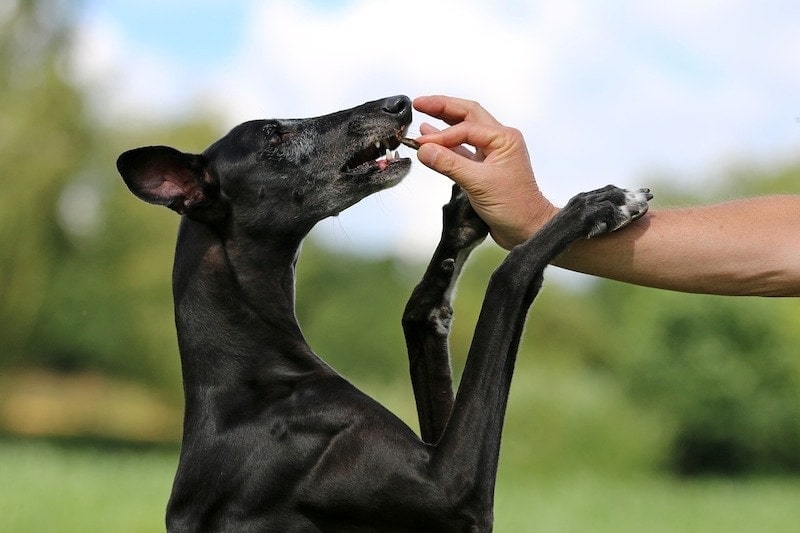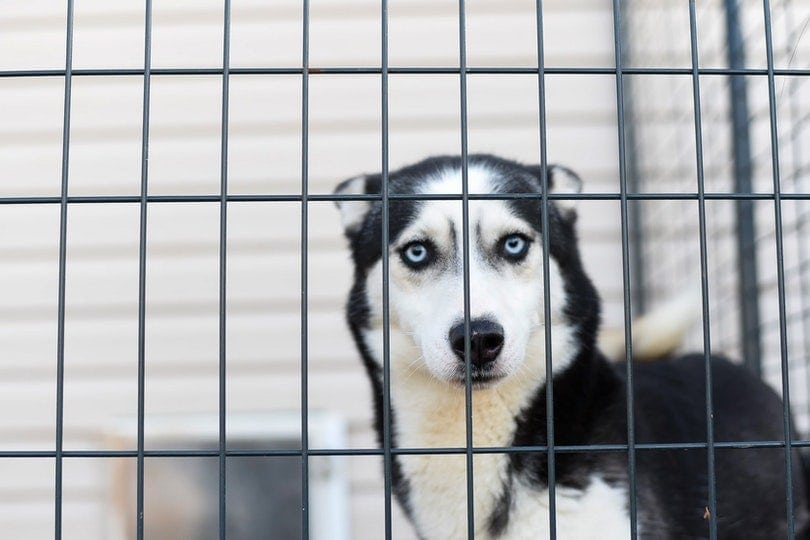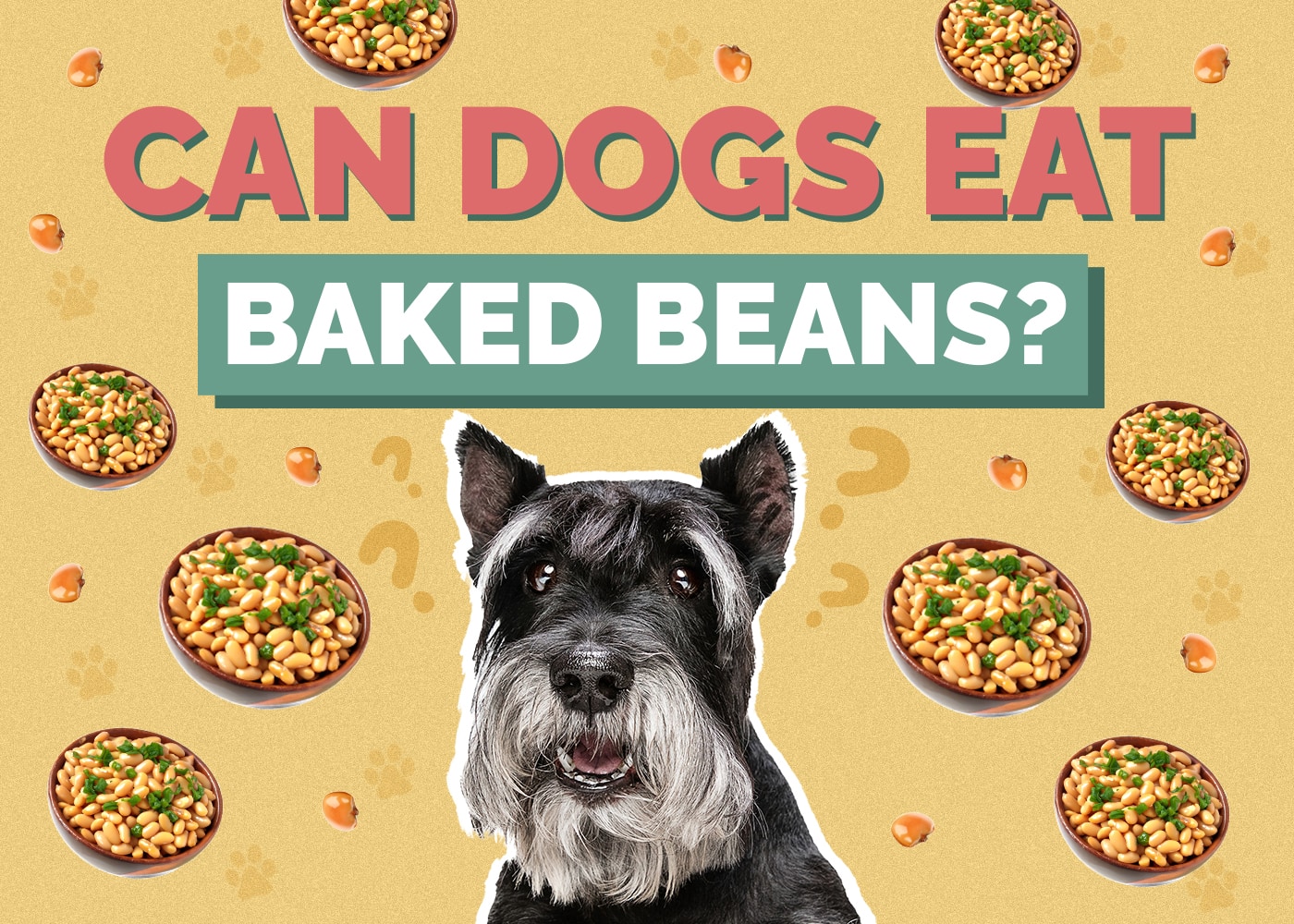Can Dogs Eat Pistachios? Nutrition Facts & Safety Guide

Updated on

Most dogs will gobble up anything, even if it’s something that’s—well—inedible. When it comes to dogs indulging in human food, most pet owners know the risks associated with that. But if you’re eating a simple, salty snack like pistachios, can you toss your dog a nut or two?
It may surprise you, but pistachios are non-toxic to dogs and interestingly they can even be good for dogs in small doses. But just how much is too much? Let’s discuss the combination of your dog’s digestive system and this tasty green tree nut.
All About Pistachios
Pistachios are a member of the cashew family that grows in Central Asia and the Middle East. They are a tree nut that is widely enjoyed all around the world for its mild, semi-sweet, piney taste. They’re instantly recognizable because of their unique light green color and difficult-to-open shell.
Pistachios are one of the healthiest nuts due to their well-balanced, nutrient-rich qualities. Your dog can enjoy a pistachio nut or two, and there are even some perks when they do. Just be aware of how much you’re giving your dog since there are some drawbacks as well.
Nutritional Benefits for Dogs
Pistachios are known for their health benefits. These nuts are full of excellent nutritional content to replenish the body of vital nutrients.
There are some excellent pistachio benefits—they are:
- Full of unsaturated fatty acids
- Anti-inflammatory thanks to their potassium
- High in fiber
- Packed with minerals
- High in protein
- Terrific for gut health
These upsides extend to our canine companions, though they are unlikely to reap all the full rewards in such low doses.
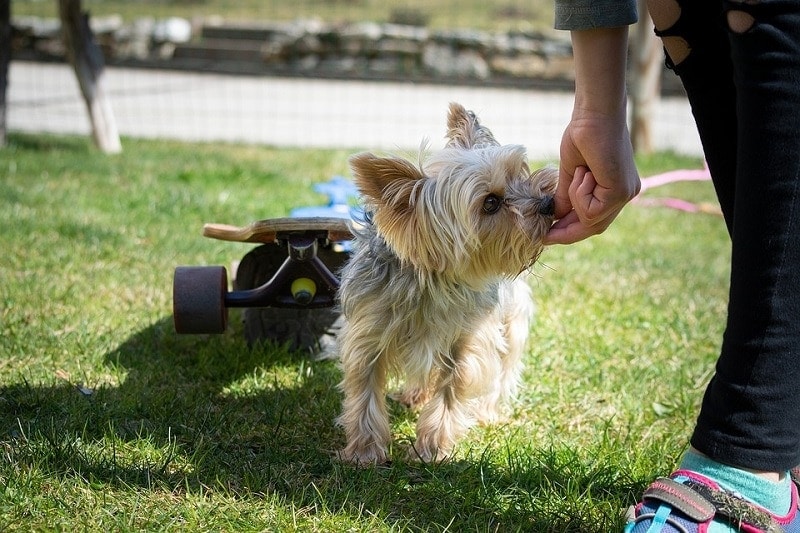
Potential Health Risks
Pistachios usually pose no health risks when you offer them sparingly. But if your dog got into them without your approval, here are a few things to look out for.
Hard Shell
The risks associated with pistachios have little to do with the nut itself—the hard shell is the real problem. If your dog got into a bag of salty, delicious pistachios and ate them, shell and all, you have bigger problems than toxicity. Pistachio shells are extremely hard and won’t break down in your dog’s digestive tract.
Thus, it can cause the shell to tear the stomach’s lining or the intestine, which can warrant a vet visit. If you know that your dog ate shells, take them to the vet immediately since it’s a time-sensitive matter. Also, pistachios are a potential choking hazard.
Salt Content
Salt isn’t good for dogs in large quantities, even though they need sodium to thrive. Sodium helps with nerve function and cell protection. While it’s a necessary additive in their meals, too much in their diet can cause unwanted side effects.
Pistachios are very high in salt content, so too many can cause high blood pressure and dehydration. You should also avoid extra sodium in their diet if your dog has issues with their kidney or liver.
To circumvent this issue entirely, you can get unsalted pistachios for your snacking pleasure if you plan to share them with your dog.
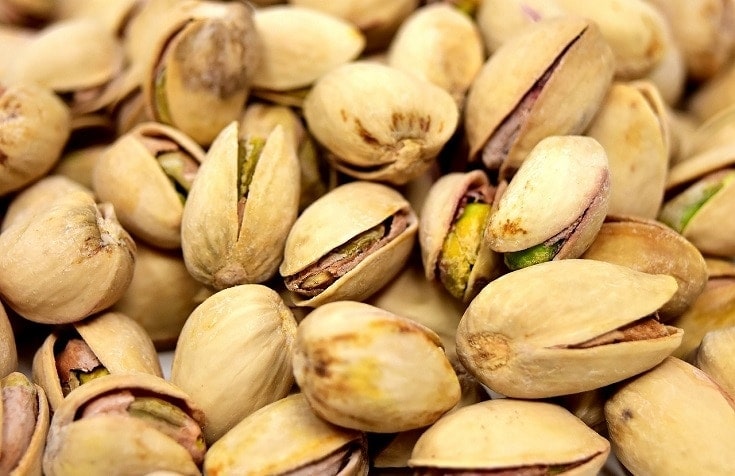
Fat Content
Fat is a necessary nutrient, but like salt, too much fat in anyone’s diet is bad news—dogs included. Excessive fat intake can lead to obesity and acute pancreatitis.
If your dog has a few nuts here and there, it won’t cause long-term problems. But if it becomes a habit, or if your dog is already obese, it might not be the best idea to let them indulge.
Are All Nuts Safe for Dogs?
Even though pistachios are safe for your pooch, some nuts are very dangerous. Here’s a quick look at both edible and toxic nuts so you can remember for later.
Non-Toxic Nuts for Dogs
- Almonds: Give in moderation, these nuts are high in fat
- Peanuts: Rarely, peanut allergies can occur
- Cashews: Safe, but extremely high in fat
Toxic Nuts for Dogs
- Macadamia: Highly toxic, causing neurotically problems
Potentially Dangerous Nuts
- Walnuts: Large, hard to chew, non-toxic
- Pecans Large, hard to chew, non-toxic
Conclusion
So, we learned that pistachios are non-toxic to your dog. However, shells can be extremely dangerous since your dog can’t digest them. It’s not a healthy treat for them since these nuts are so high in fat and salt. If you do give your dog a few nuts to crunch on, they will be no worse for the wear, but too many can lead to obesity—and sometimes, pancreatitis.
Keep in mind that all sharing of human food with your dog should be minimal. It’s best to stick to treats made for dogs when you can and hoard the human goodies to yourself.
Featured Image: sunnysun0804, Pixabay

